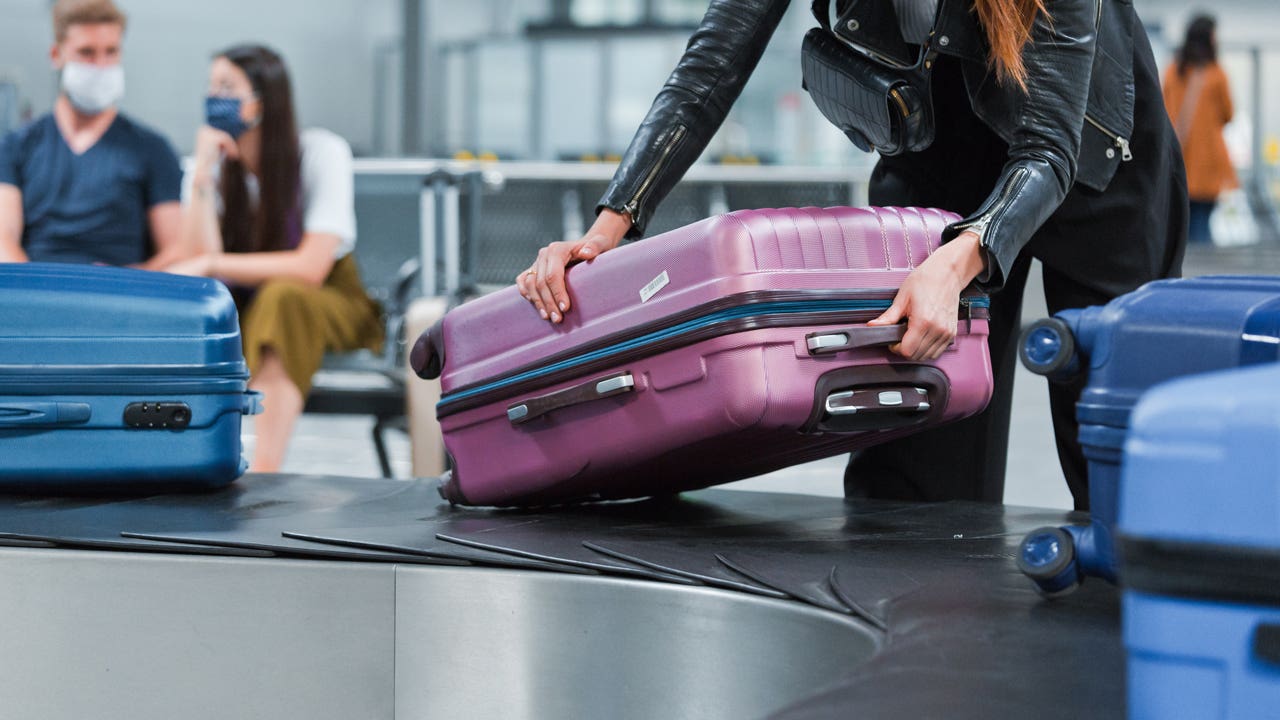Travel fees you can avoid with the right card lineup

Key takeaways
- Many credit cards offer credits and perks that can reduce the costs of airline, baggage, resort and other fees.
- When planning your vacation, look for cards that can save you from 3 percent to 5 percent by charging no transaction fees on your international purchases.
- You can also save on unexpected fees like out-of-network ATM fees with the right debit card.
The hospitality industry keeps moving toward a la carte pricing to increase revenue. Fees for everything from checked bags to amenities have become the norm, making it costly for travelers who don’t want a bare-bones experience.
These costs add up when you add a credit card to the mix: Swiping your credit card for a purchase can incur an extra 3 percent charge, while pulling cash out of your account is costly, too.
Luckily, you have ways to circumvent many of these added fees. By leveraging the right credit cards, you can save money on travel and have more to spend at your destination. Here are five common travel fees you can avoid with the right travel credit card lineup.
Baggage fees
If you’re loyal to an airline, never pay for checked bags again with the right credit card.
No matter how often you travel, checked bag fees can add up fast. Luckily, plenty of credit cards offset this fee entirely.
Most airline credit cards offer a free checked bag for the primary cardholder and at least one other traveler on the same itinerary. On a round-trip flight, that can add up to more than $120 in savings for a couple traveling together. Considering most airline credit cards charge annual fees as low as $95, this benefit alone can well offset that fee.
Even if you’re not loyal to a single airline, you can still get waived baggage fees. For example, the Capital One Venture Rewards Credit Card allows you to redeem miles toward any and all travel purchases — including baggage fees. Simply charge the expense to your Venture Rewards card, and redeem your miles at a rate of 1 cent each. That’d require 3,000 miles for the average $30 baggage fee.
Several credit cards offer annual travel credits ranging from $100 to $300, and a number of them also include a specific airline fee credit. But watch for caveats: American Express, for example, requires that you pre-select an airline every year — a downside if you aren’t loyal to one airline and might not use the credit in full.
Still, most people get these cards for the multitude of travel perks, and the airline fee credit saves them from having to get a co-branded card to cover baggage fees.
Resort fees
Most award stays waive resort fees at hotels.
Hotels have been drumming up revenue much in the same way as airlines have — with fees. These costs can take the form of resort fees, though hotels may also call them “urban” or “destination” fees. In any case, paying an extra $35 each night on top of your room rate can eat into your travel budget.
But resort fees don’t have to be a drag on your vacation. The best hotel credit cards offer either statement credits to offset resort fees or elite status that gets them waived. Most notably, the World of Hyatt program waives resort fees for top-tier Globalist members, and Hyatt also waives resort fees when you redeem World of Hyatt points for your stay.
The same goes for Hilton. And if you have the Hilton Honors American Express Aspire Card*, you also get up to $400 ($200 semi-annually) in credits for purchases at participating Hilton resorts, like restaurants and spa treatments.
With the automatic Diamond status that comes with my Hilton Aspire, I get all resort fees waived on my award stays. The card generates tons of Hilton points, so I rarely need to pay for a stay with cash. I'll often stay at a Hilton resort for a week, so the savings from waiving those fees saves me significant money.— Ryan Flanigan, Bankrate credit cards writer
Award taxes and fees
Use statement credits to offset any travel-related fee, including pesky taxes and fees.
There’s no such thing as a “free trip,” and that extends to award travel. All airlines impose taxes and fees on award flights, which start at $5.60 and can soar to well over $1,000, depending on the route. And while earned points can add up to heavy travel discounts, these taxes can add up if you’re traveling with another person — even more so with a family.
The best way to offset award taxes and fees is by taking advantage of airline fee credits. But if you prefer to avoid high-annual-fee cards like those designed for travel, the Capital One Venture Rewards card could be a solid alternative. While it doesn’t offer a statement credit, you can redeem miles toward all travel purchases — including award taxes and fees.
Foreign transaction fees
Use the right credit card and never worry about foreign transaction fees again.
If you have a card like the Chase Freedom Unlimited®, you may not even be aware that using your card abroad — or for any purchases in foreign currency, even if you make them from your own home — incurs a 3 percent foreign transaction fee. But it’s true, and those costs can grow quickly.
You can circumvent these pesky fees by using a top credit card with no foreign transaction fees when traveling. There are plenty to choose from, including the popular Chase Sapphire Preferred® Card, which charges a $95 annual fee that you can easily offset with its perks.
Several of the best no-annual-fee cards also don’t charge foreign transaction fees. These include :
- Capital One VentureOne Rewards Credit Card
- Discover it® Cash Back
- Capital One Quicksilver Cash Rewards Credit Card
These cards offer a lucrative rewards structure and easy point redemptions, too.
ATM fees
Some debit cards reimburse ATM fees from anywhere in the world.
When you’re touring a new city or country and need cash quickly, it might not be easy to find an ATM affiliated with your bank. The fees for using an out-of-network ATM can be hefty. Two debit cards waive all ATM fees:
- The Charles Schwab debit card
- The Fidelity debit card
Both cards are associated with cash management accounts, which operate similar to bank accounts, and waive all ATM fees domestically and abroad. Simply open a Schwab Bank High Yield Investor Savings® Account or Fidelity® Cash Management Account, and you’ll get a debit card that you can use for fee-free ATM withdrawals worldwide.
The bottom line
Fees can add up when you’re traveling, but there are many ways to get around them with the right card. A bit of preparation and the right card lineup at hand can help you save hundreds of dollars and make your travels — and your wallet — a little more comfortable.
*Information about the Hilton Honors American Express Aspire Credit Card has been collected independently by Bankrate and has not been reviewed or approved by the issuer.
Why we ask for feedback Your feedback helps us improve our content and services. It takes less than a minute to complete.
Your responses are anonymous and will only be used for improving our website.






